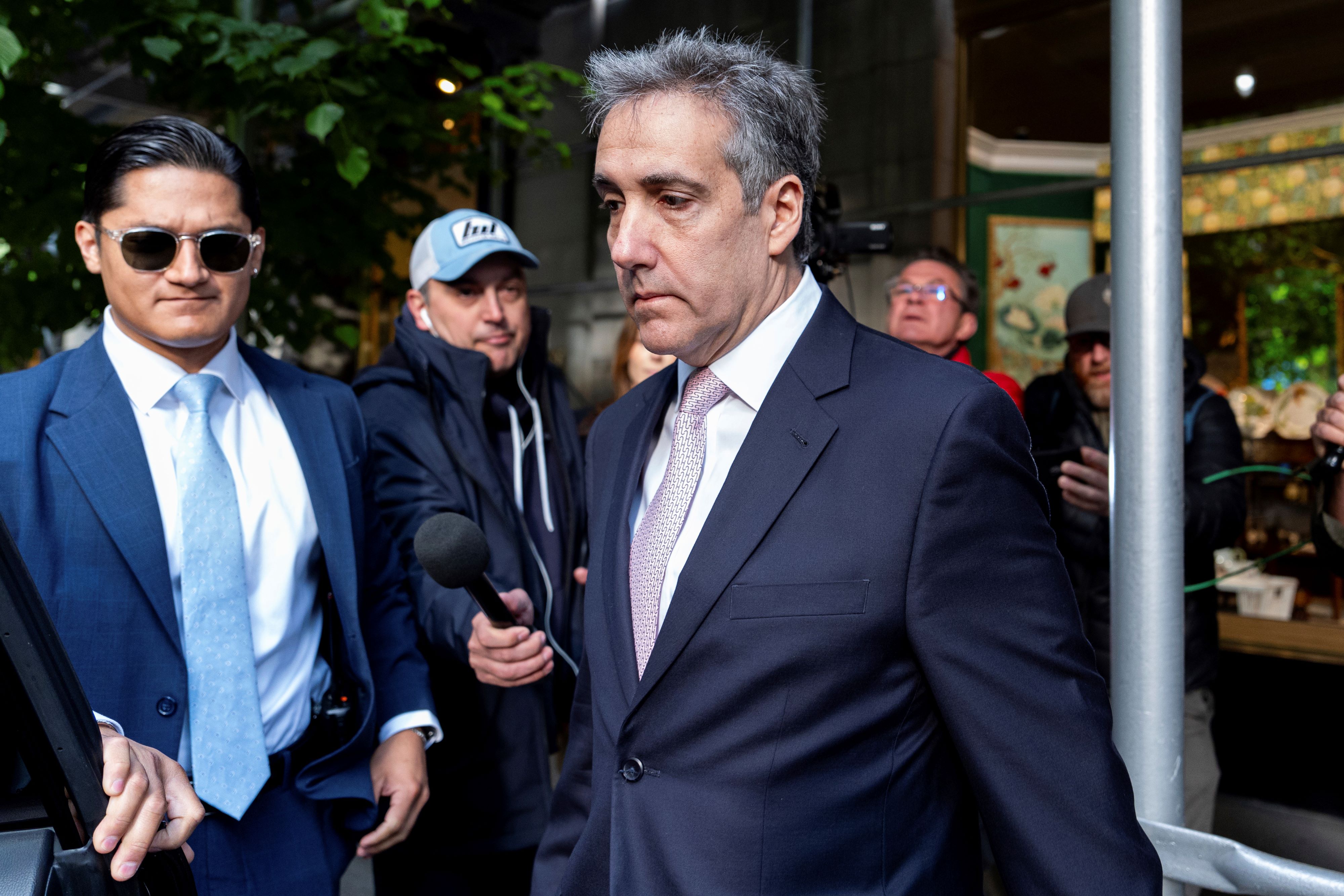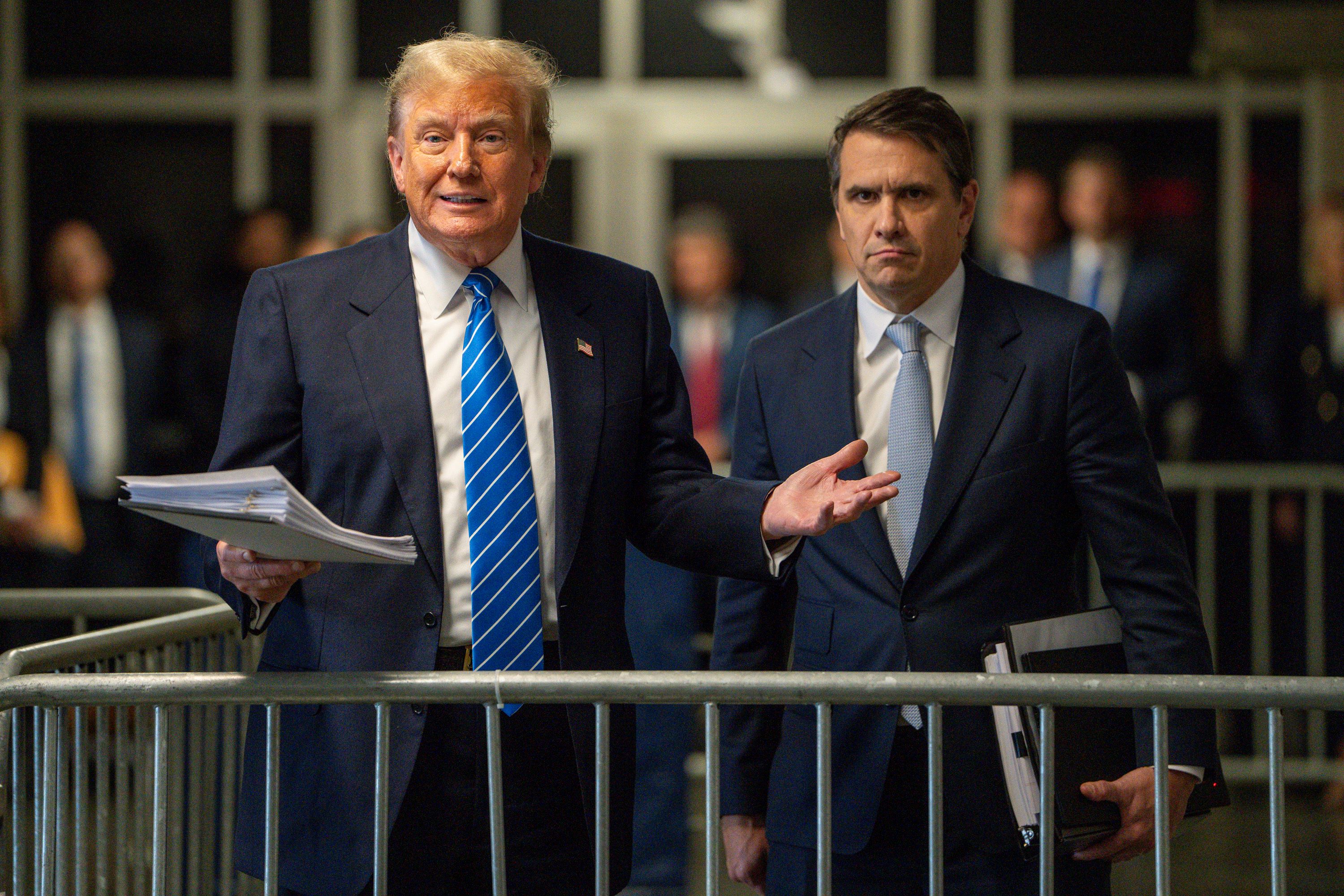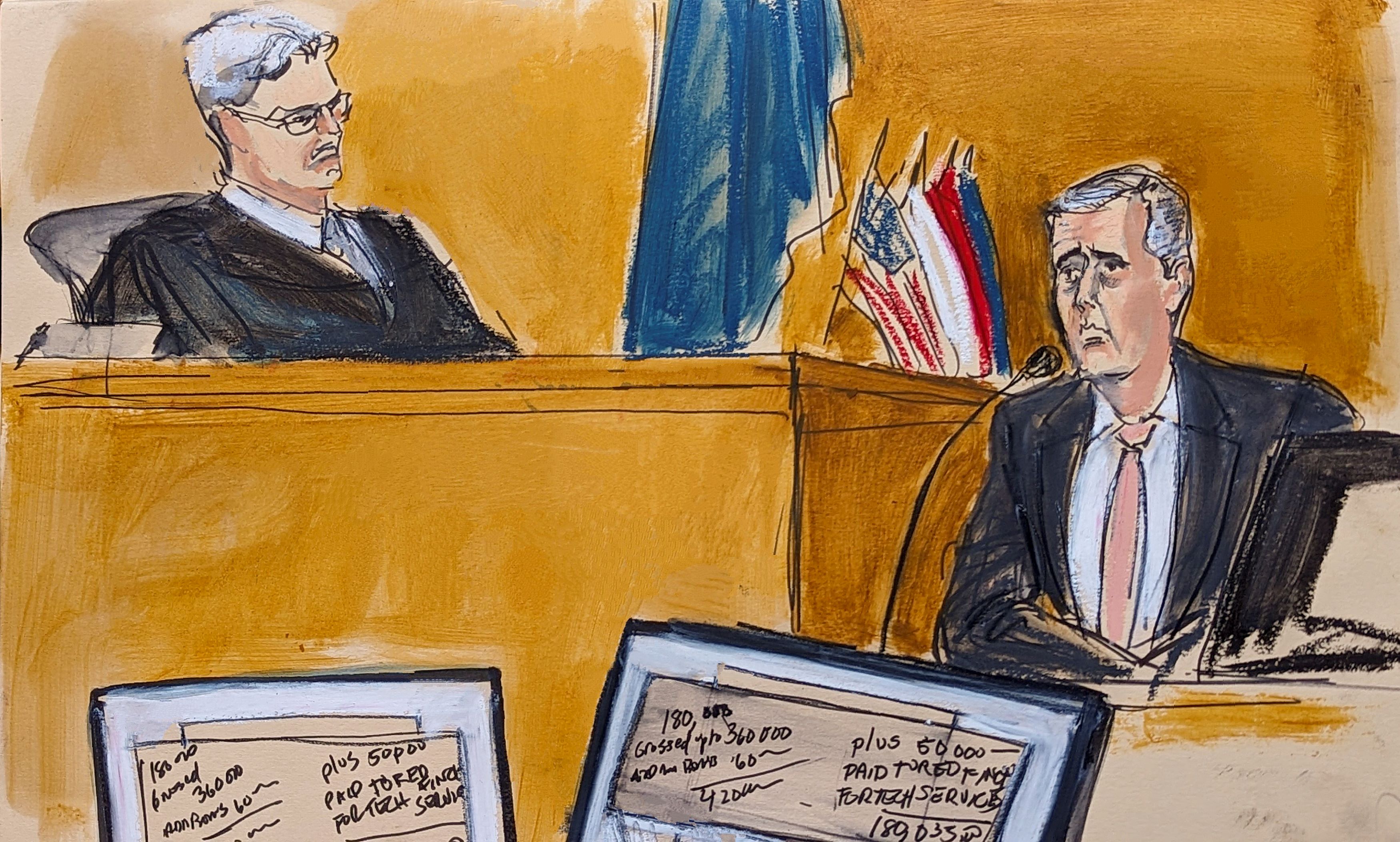
NEW YORK - Donald Trump's former fixer Michael Cohen told jurors on Monday that the Republican presidential candidate personally approved a hush money payment to bury a porn star's story of a sexual encounter before it could derail his 2016 campaign.
"Just do it," Cohen said Trump told him, instructing him to figure out the best way of paying adult film actress Stormy Daniels $130,000 to stay quiet about an alleged 2006 liaison, which he denies.
The October 2016 payment is at the center of the historic trial, which entered its fifth week in New York state criminal court in Manhattan. Prosecutors have said they could rest their case this week.
READ MORE: Judge warns Trump of jail time for violating gag order
In hours of dramatic testimony, Cohen, 57, once one of Trump's most loyal lieutenants and now the prosecution's star witness, described multiple episodes in which Trump signed off on payments aimed at quashing sex-scandal stories while he campaigned for the highest office in the land.
Prosecutors have said Trump paid Cohen back after the election and hid the reimbursements by recording them falsely as legal retainer fees in Trump's real estate company's records
In the final weeks before the 2016 election, Cohen learned that Daniels was shopping her story to tabloids. It was a pivotal moment for the Trump campaign, which was reeling from the release of an audio recording from the TV show "Access Hollywood" in which Trump bragged about grabbing women's genitals.
"He said to me, 'This is a disaster, a total disaster. Women are going to hate me,' Cohen, wearing a dark suit and pink tie, testified Trump had said. "'Guys, they think it's cool, but this is going to be a disaster for the campaign.'"
Prosecutors have said Trump paid Cohen back after the election and hid the reimbursements by recording them falsely as legal retainer fees in Trump's real estate company's records.
Trump faces 34 counts of falsifying business records tied to the reimbursements. Prosecutors say the altered records covered up election-law and tax-law violations - since the money was essentially an unreported contribution to Trump's campaign - that elevate the crimes from misdemeanors to felonies punishable by up to four years in prison.
READ MORE: Hush money trial: Trump fined $9,000 for gag order violation
Trump, who is running against Democratic President Joe Biden in November, has pleaded not guilty and argues the case is a politically motivated attempt to interfere with his campaign to take back the White House.
Trump's defense has suggested the payment to Daniels, who testified last week, was meant to protect his family from embarrassment. But Cohen testified that Trump was solely concerned with the effect on his campaign.

Offering a detailed timeline of the chaotic days during the 2016 campaign's final weeks, Cohen said he set up a shell company - falsely listed as a "real estate consulting company" - to facilitate the payment through a bank across the street from New York City's Trump Tower
"He wasn't thinking about Melania. This was all about the campaign," Cohen said, referring to Trump's wife. At the defense table, Trump, 77, shook his head.
Cohen also told the 12 jurors and six alternates that Trump urged him to delay sending payment to Daniels' lawyer until after the election, telling him that the story would no longer matter.
Trump's lawyers have argued that Cohen, a felon and admitted perjurer, is lying about Trump's involvement and acted on his own. But Cohen said he would never have taken such drastic steps without Trump's approval.
ALSO READ: Trump unindicted co-conspirator as 18 indicted in Arizona 'fake voter' suit
"Everything required Mr. Trump's sign-off," Cohen said.
Offering a detailed timeline of the chaotic days during the 2016 campaign's final weeks, Cohen said he set up a shell company - falsely listed as a "real estate consulting company" - to facilitate the payment through a bank across the street from New York City's Trump Tower.
Cohen described how he and campaign spokesperson Hope Hicks frantically tried to contain the fallout when the Wall Street Journal published a story detailing another hush money payment while also mentioning Daniels.
Jurors saw emails showing the two advisers hammering out a denial, while phone records showed a number of calls between them on the day the story appeared.
That testimony could undercut any defense claim that the hush money payments were not tied to the campaign.
Secret payments
Cohen testified earlier in the day that Trump approved other payments to forestall damaging stories.
When Trump was preparing to announce his 2016 campaign, Cohen said, Trump warned him there would be "a lot of women coming forward".
ALSO READ: Hush money: Prosecutors say Trump corrupted 2016 election
Cohen said he, Trump and National Enquirer publisher David Pecker agreed to use the tabloid to boost Trump's presidential candidacy while blocking any negative stories.

That arrangement included a $150,000 payment from Pecker's company to former Playboy model Karen McDougal to buy her story about a year-long affair she said she and Trump had, Cohen said. Trump has also denied that relationship.
Cohen said it was fair to describe his role as a fixer for Trump, testifying that he took care of "whatever he wanted"
Jurors were played a recording Cohen said he made of a meeting in which Trump asked him, "So what do we got to pay for this? One-fifty?"
Pecker previously testified at the trial that he acquired McDougal's story to keep it under wraps and that he eventually decided not to seek reimbursement from Trump.
For nearly a decade, Cohen worked as an executive and lawyer for Trump's company and once said he would take a bullet for Trump.
Cohen said it was fair to describe his role as a fixer for Trump, testifying that he took care of "whatever he wanted". Among his duties was threatening to sue people and planting positive stories in the press, he said.
READ MORE: Man sets self on fire outside New York court where Trump trial underway
Trump, he said, communicated by phone or in person and never set up an email address. Jurors were shown multiple phone records of Cohen's calls to Trump at moments when he testified he was executing the hush money deals.
Cohen pleaded guilty in 2018 to violating federal campaign finance law by paying off Daniels and testified that Trump directed him to do so
"He would comment that emails are like written papers, that he knows too many people who have gone down as a direct result of having emails that prosecutors can use in a case," Cohen said.
Cohen pleaded guilty in 2018 to violating federal campaign finance law by paying off Daniels and testified that Trump directed him to do so. Federal prosecutors did not charge Trump with any crime.
READ MORE: Hunter Biden loses bid to dismiss gun charges, clearing way for June trial
The Manhattan trial is widely seen as less consequential than three other criminal prosecutions Trump faces, all of which are mired in delays.
The other cases charge Trump with trying to overturn his 2020 presidential defeat and mishandling classified documents after leaving office. Trump pleaded not guilty to all three.
Cohen will resume testifying on Tuesday.


